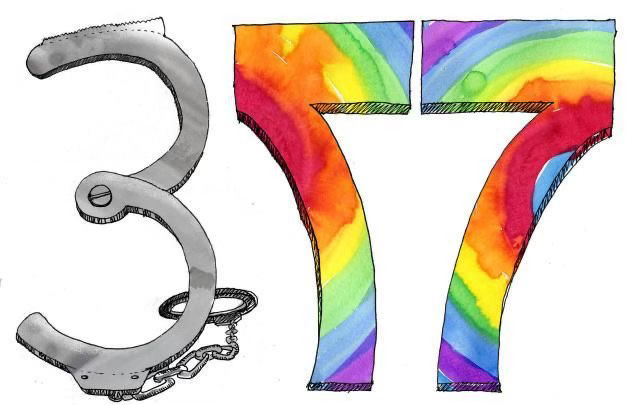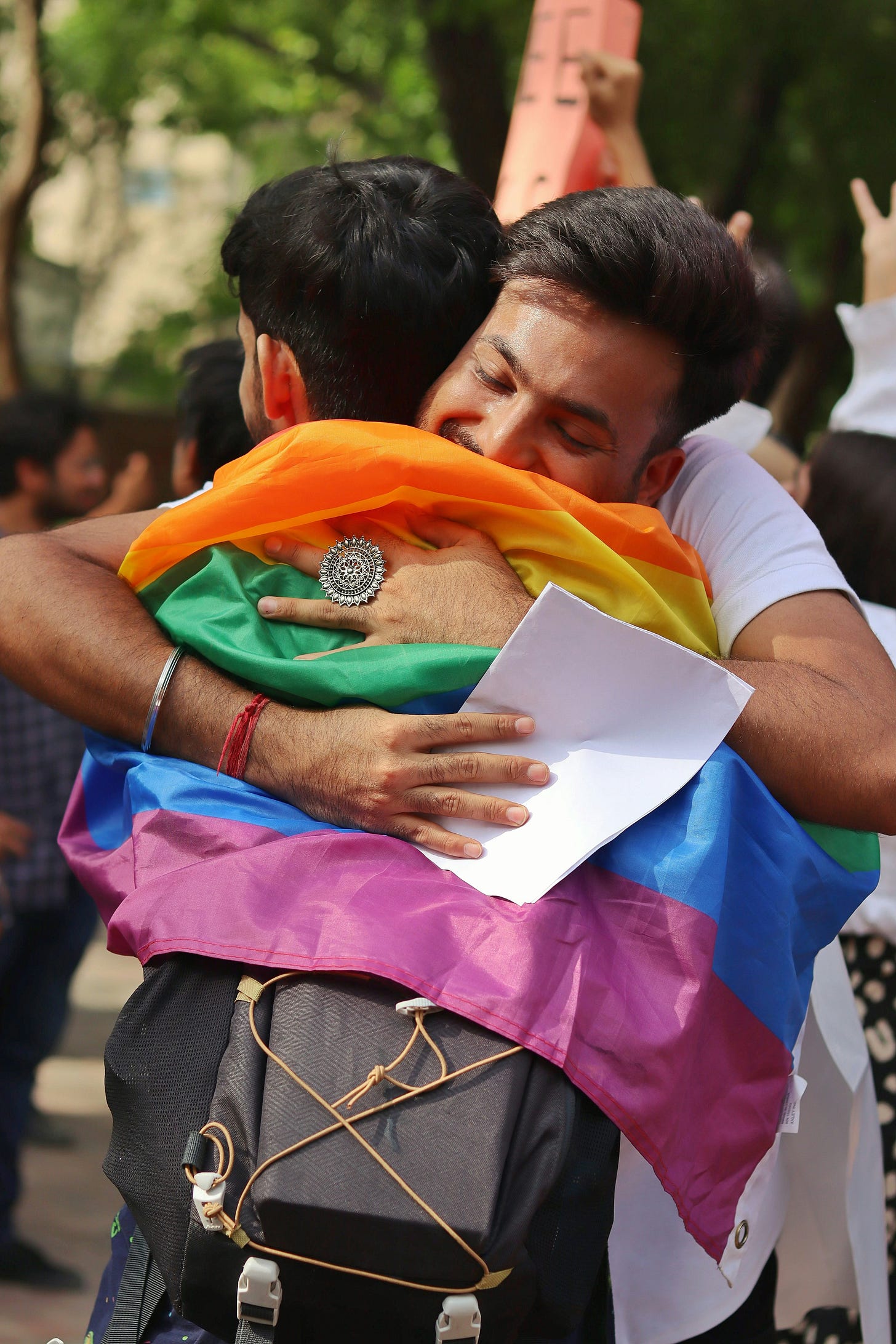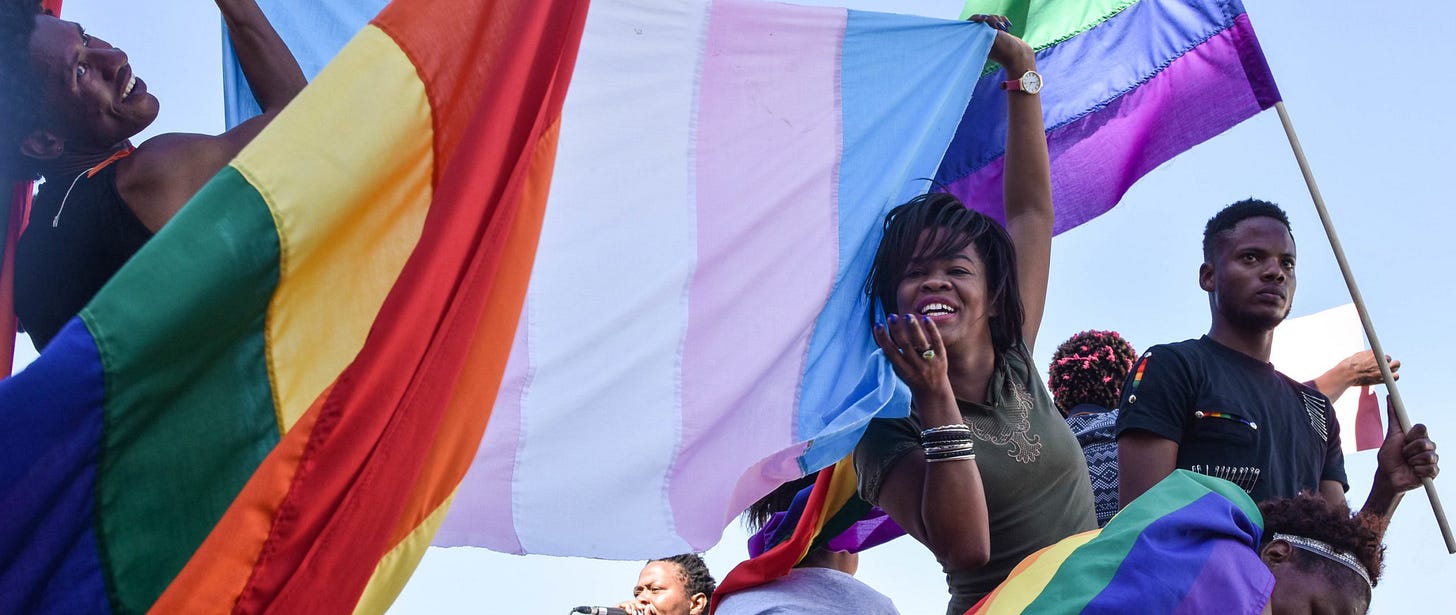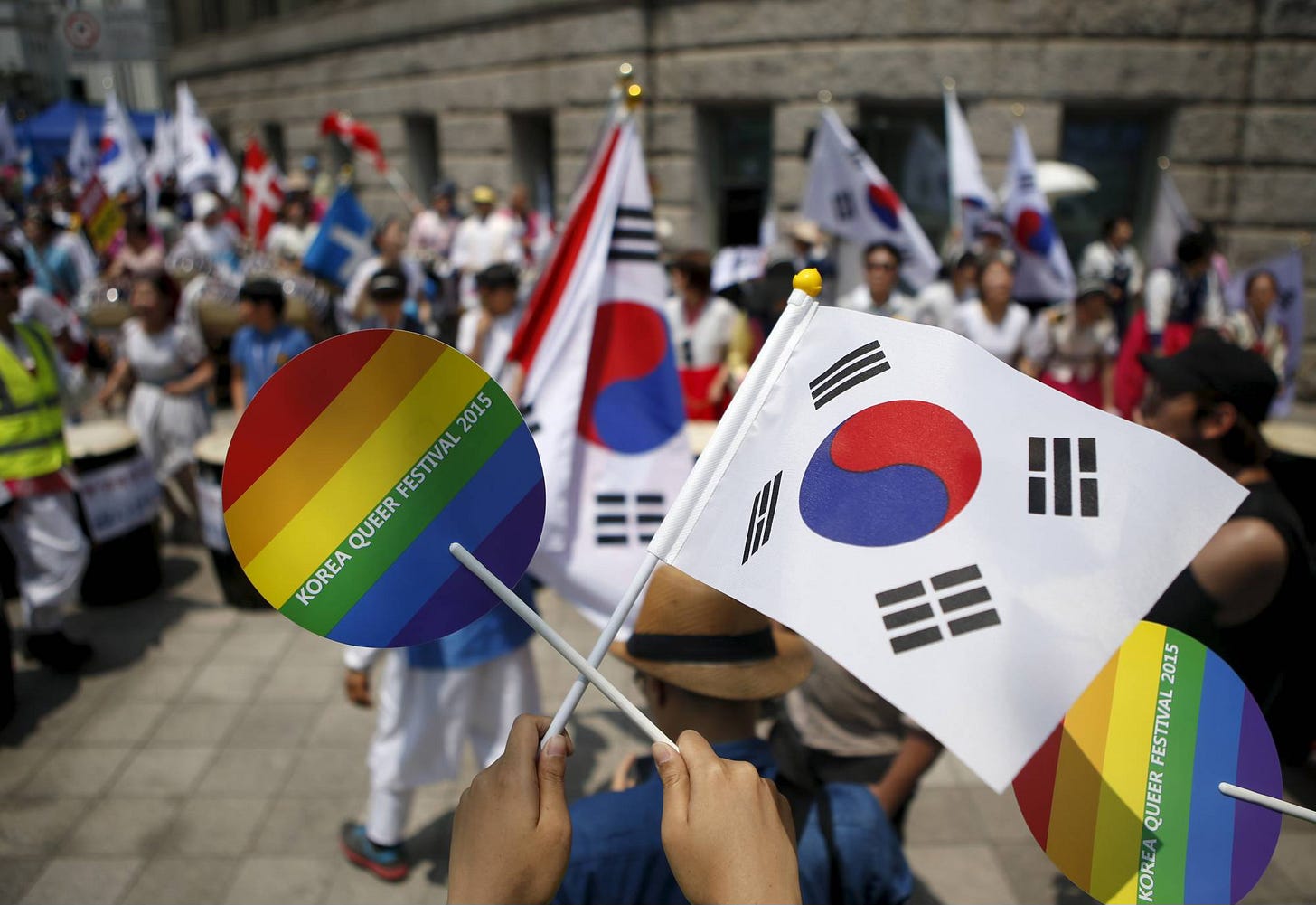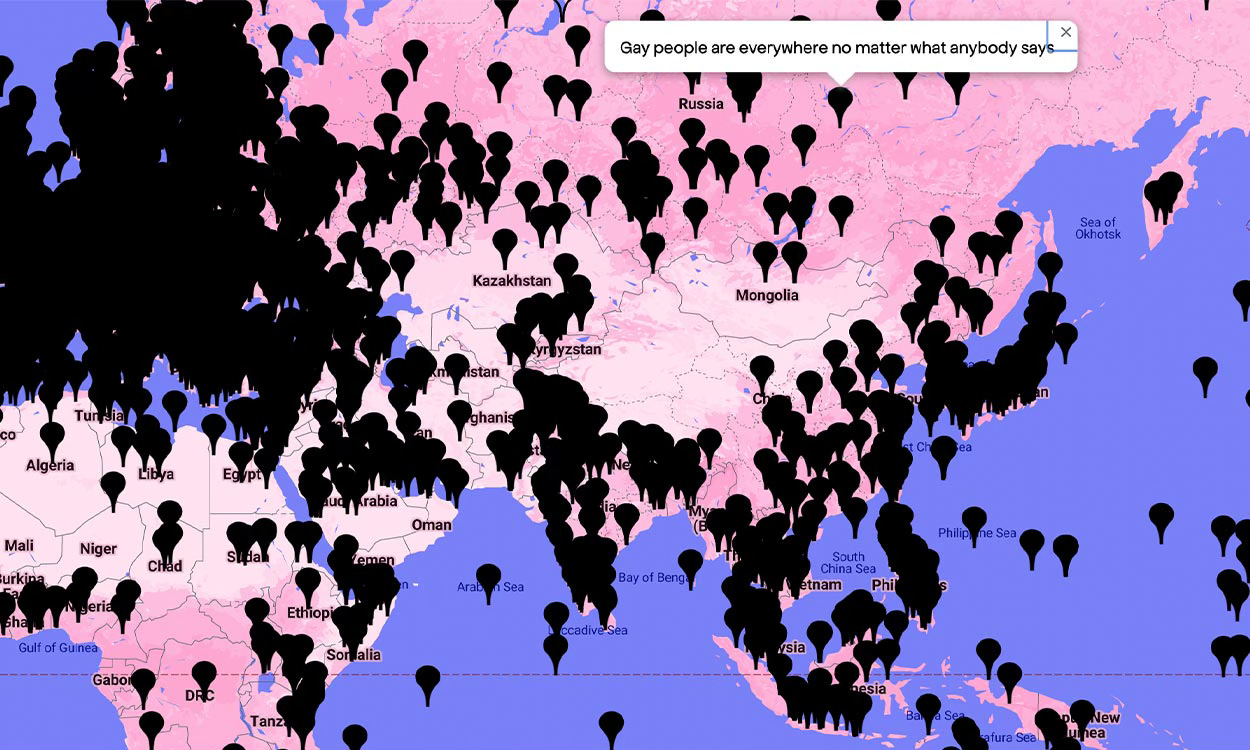A Queer Map of the World
Queer Liberation is Not a Western Invention. From South Africa’s townships to Delhi’s courtrooms, this article redraws the queer map of the world.
In mapping the lines of queer liberation, the United States is often placed at the center, as if Stonewall were the epicenter of a global earthquake, rippling outward across the rest of the world. But this is a grave cartographic error. Queerness has always been borderless, insurgent, and indigenous. It has existed before the flag, before the hashtag, before the West decided what pride should look like. This article redraws the queer map of the world, one that de-centers the U.S. and spotlights movements across India, Brazil, South Africa, just to name a few.
India: Reclaiming the Sacred, Repealing 377
In India, queerness is not a Western import, it is an ancient celebration. The ancient texts speak of gender fluid deities, transgender priests, and same-sex love with spiritual gravitas. Yet, British colonialism imported not only railroads but also criminal codes, among them Section 377, which outlawed “carnal intercourse against the order of nature.”
For 157 years, Section 377 was used to criminalize and humiliate LGBTQ+ Indians. But in 2018, the country’s Supreme Court, in a landmark decision, decriminalized homosexuality. The fight was decades in the making, led by a mosaic of grassroots groups, queer artists, lawyers, as well as Dalit and trans activists who rejected both colonial morality and caste hierarchies. The Naz Foundation’s 2001 lawsuit against 377 was the legal spark, but the true fuel was cultural resistance, from drag performances in Delhi’s underground clubs to Tamil-language zines in rural villages.
Decriminalization was not the end, but a turning point. Today, the Indian queer movement is focused on issues like trans rights, marriage equality, and caste inclusion, refusing to trade one erasure for another.
Brazil: Trans Activism on the Frontlines of Violence
Brazil is often described with a paradox: a country with vibrant LGBTQ+ culture and the highest murder rate of trans people in the world. Carnival celebrates fluidity, yet the streets are often deadly. But within this contradiction lies one of the most powerful trans rights movements on the planet.
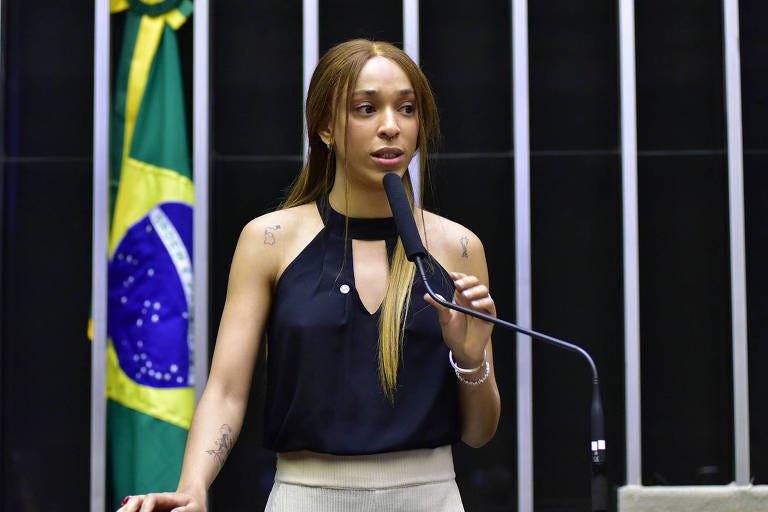
Trans Brazilians, particularly Black and Indigenous femmes, have refused invisibility. Activists like Erika Hilton, a Black trans woman elected to São Paulo’s City Council, are redefining power from the inside. Grassroots organizations like Casa Nem in Rio de Janeiro offer housing and protection to trans people kicked out by their families, creating literal shelters of resistance.
Their activism confronts both patriarchal violence and Bolsonaro-era bigotry, where anti-queer rhetoric has been state-sponsored. But trans communities in Brazil understand visibility is not safety. They practice survival as an art form, through community kitchens, underground balls, and radical education projects. This is not representation for its own sake, but transformation.
South Africa: Constitutional Rights, Lived Contradictions
In 1996, South Africa became the first country in the world to explicitly ban discrimination based on sexual orientation in its constitution. At face value, it’s a queer utopia. Yet, the promise of post-Apartheid liberation has often clashed with the lived experiences of Black queer South Africans, especially in townships, where “corrective rape” and police indifference remain brutally common.
The queer liberation movement in South Africa was born in the shadow of Apartheid, where Black LGBTQ+ people fought on dual fronts: racial oppression and sexual invisibility. Organizations like GALA (Gay and Lesbian Memory in Action) and OUT LGBT Well-being have archived these struggles, turning memory into resistance.
Importantly, South African queer activism is deeply intersectional. It critiques “pinkwashing” and challenges the myth that legal rights equal justice. As queer Xhosa poet Koleka Putuma writes, “It is not enough to be allowed in. I want to belong.”
Beyond the Map: Queer Geographies in Motion
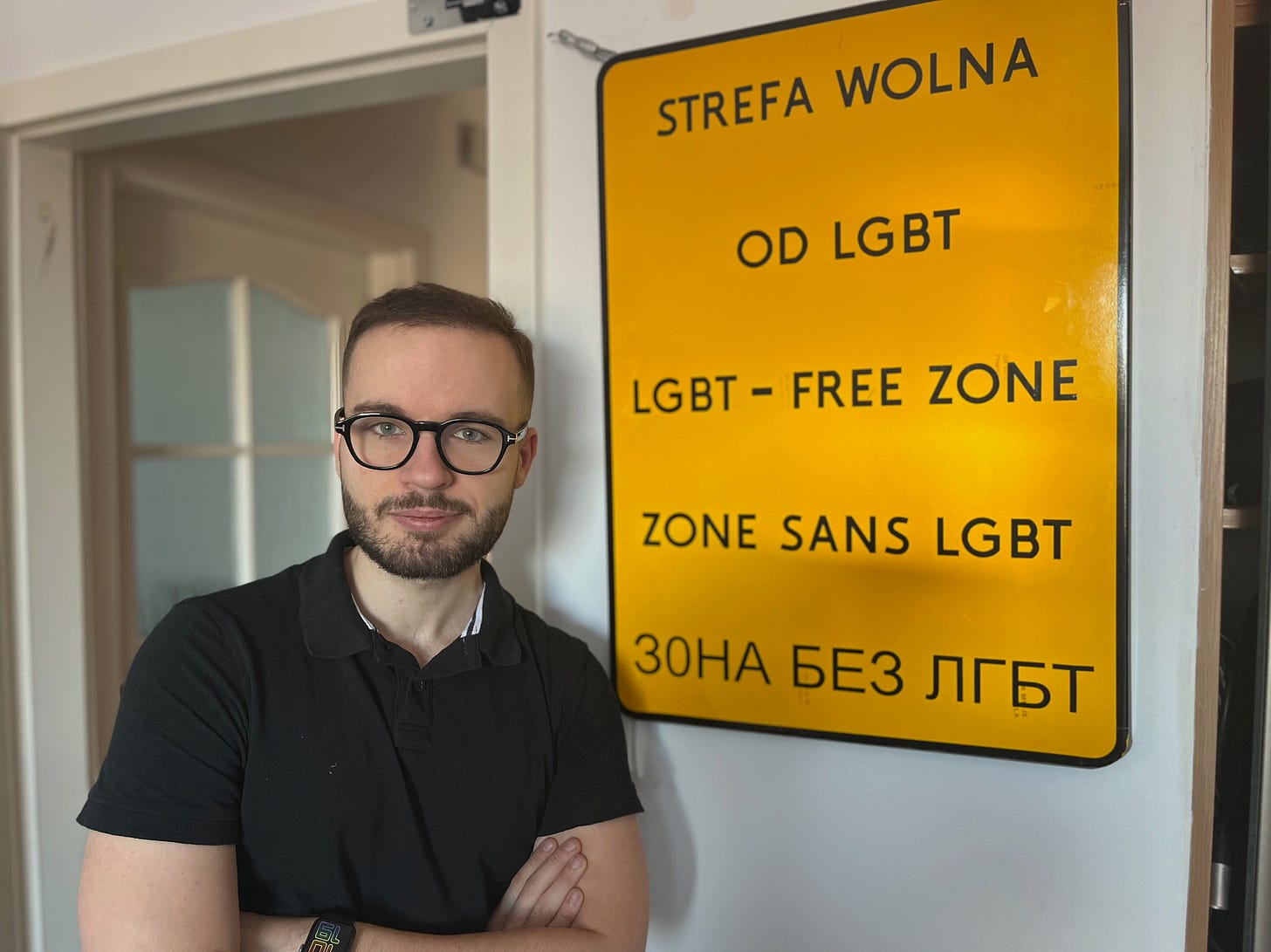
In Poland, “LGBT-free zones” have sparked global outrage, but local resistance is fierce. Drag queens protest in cathedrals, and queer teenagers organize underground Pride marches. In Uganda, where anti-LGBTQ+ legislation turns queerness into a crime against the state, activists risk arrest to provide HIV services and safe houses. In South Korea, the annual Seoul Queer Culture Festival draws thousands, even as the military criminalizes same-sex relations among soldiers.
Queer liberation is not a one-size-fits-all narrative. It is messy, localized, and often led by the most marginalized, sex workers, Indigenous femmes, disabled queers, and youth with no institutional backing. These are not just “human rights” stories sanitized for global NGOs. They are revolutions in miniature. Quiet, fierce and unapologetically rooted in place.
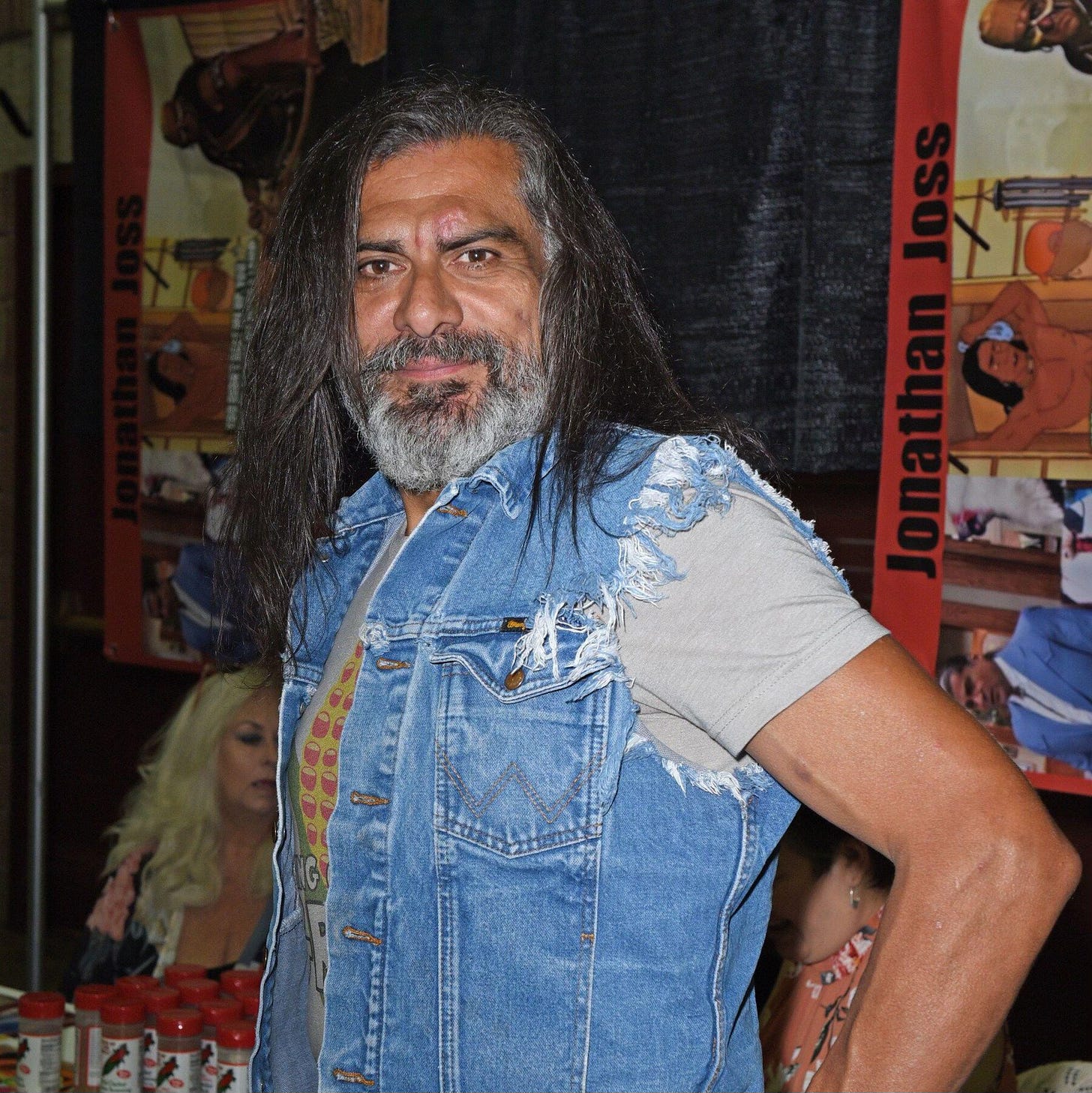
Toward a Polyphonic Pride
To decenter the U.S. is not to deny its queer history, it is to recognize that everywhere has its Stonewalls, though they may look different: a courtroom in Delhi, a favela in Rio, a township in Cape Town. A queer map of the world is not drawn in rainbow lines of assimilation but in constellations of resistance.
Let us celebrate not just the right to marry or march, but the right to exist on one’s own terms, against empire, against erasure, and against the gravitational pull of narratives that only orbit the West.
Pride is not a destination. It is a direction. Queer futures are being charted in EVERY corner of this unruly, beautiful world.
🏳️🌈 Stay Informed: Current Queer Movements Fighting for Equal Rights (2025)
• Queer Liberation March (NYC) (https://en.wikipedia.org/wiki/Queer_Liberation_March)
A grassroots, anti-corporate Pride protest centering trans, BIPOC, and nonbinary voices. Held annually in New York City.
• Christopher Street Project (https://en.wikipedia.org/wiki/Christopher_Street_Project)
A nonprofit PAC founded in 2025 to elect pro-trans candidates and hold lawmakers accountable for anti-trans legislation.
• Liberation Weekend (Washington, D.C.) (https://pitchfork.com/thepitch/liberation-weekend-the-trans-punk-diy-music-festival)
A trans-led DIY music and protest festival pushing back against anti-trans laws through art, punk, and collective power.
• Human Rights Campaign (HRC) (https://www.hrc.org/)
The largest LGBTQ+ rights organization in the U.S., leading policy work, community support, and public education.
• PFLAG (https://en.wikipedia.org/wiki/PFLAG)
A family-based LGBTQ+ advocacy network promoting inclusive schools, communities, and workplaces for queer youth and adults.
• Stonewall Democrats (https://en.wikipedia.org/wiki/Stonewall_Democrats)
An LGBTQ+ political group within the Democratic Party that endorses equality-driven candidates and policies.
• PRISM FL (https://www.prismfl.org/)
A South Florida-based nonprofit providing inclusive sexual health education, resources for LGBTQ+ youth, and community-building programs in underrepresented areas.
• Outright International (https://outrightinternational.org/)
A global LGBTQ+ advocacy org working with the UN and grassroots movements to support equality in over 60 countries.
• Pride Month Global Parades 2025 (https://timesofindia.indiatimes.com/world/rest-of-world/in-photos-pride-month-kicks-off-june-2025-why-pride-parades-matter-to-the-lgbtq-community/photostory/121629831.cms)
Celebrations from Bangkok to Berlin that also double as calls for justice, safety, and legal protections worldwide.
• Dyke Marches in Europe (https://en.wikipedia.org/wiki/Dyke_march)
Independent, lesbian-led marches across Europe focusing on intersectional feminism and grassroots organizing.
Sources
Navtej Singh Johar v. Union of India, Supreme Court of India, 2018.https://indiankanoon.org/doc/168671544/
Bhattacharya, Ananya. “India’s Supreme Court Has Decriminalized Gay Sex in a Historic Ruling.” Quartz India, Sept. 6, 2018.https://qz.com/india/1383472
Narrain, Arvind. Law Like Love: Queer Perspectives on Law. Yoda Press, 2011.
Balzer, Carsten, and Jan Simon Hutta. Transrespect versus Transphobia Worldwide: A Comparative Review of the Human-Rights Situation of Gender-Variant/Trans People. TGEU, 2012.https://transrespect.org/en/research/transrespect-vs-transphobia/
Phillips, Dom. “Brazil’s First Transgender City Councilor Faces Threats Amid Far-Right Backlash.” The Guardian, Feb. 10, 2021.https://www.theguardian.com/world/2021/feb/10/brazil-transgender-city-councilor-erika-hilton
Trans Murder Monitoring Project 2023. Transrespect vs. Transphobia Worldwide (TGEU).https://transrespect.org/en/trans-murder-monitoring/
Constitution of the Republic of South Africa, 1996 – Section 9: Equality.https://www.justice.gov.za/legislation/constitution/SAConstitution-web-eng.pdf
Tucker, Andrew. Queer Visibilities: Space, Identity and Interaction in Cape Town. Wiley-Blackwell, 2009.
Muwanga, Isaac. “South Africa’s Queer Rights Are World-Leading—But Who’s Left Out?” OpenDemocracy, April 29, 2019.https://www.opendemocracy.net/en/5050/south-africa-lgbtq-rights-whos-left-out/
ILGA World. State-Sponsored Homophobia Report 2023.https://ilga.org/state-sponsored-homophobia-report
Altman, Dennis. Global Sex. University of Chicago Press, 2001.
Long, Scott. “Before Stonewall: The Global LGBTQ Rights Struggle.” Human Rights Watch, June 28, 2019.https://www.hrw.org/news/2019/06/28/stonewall-and-world
Putuma, Koleka. Collective Amnesia. uHlanga Press, 2017.




